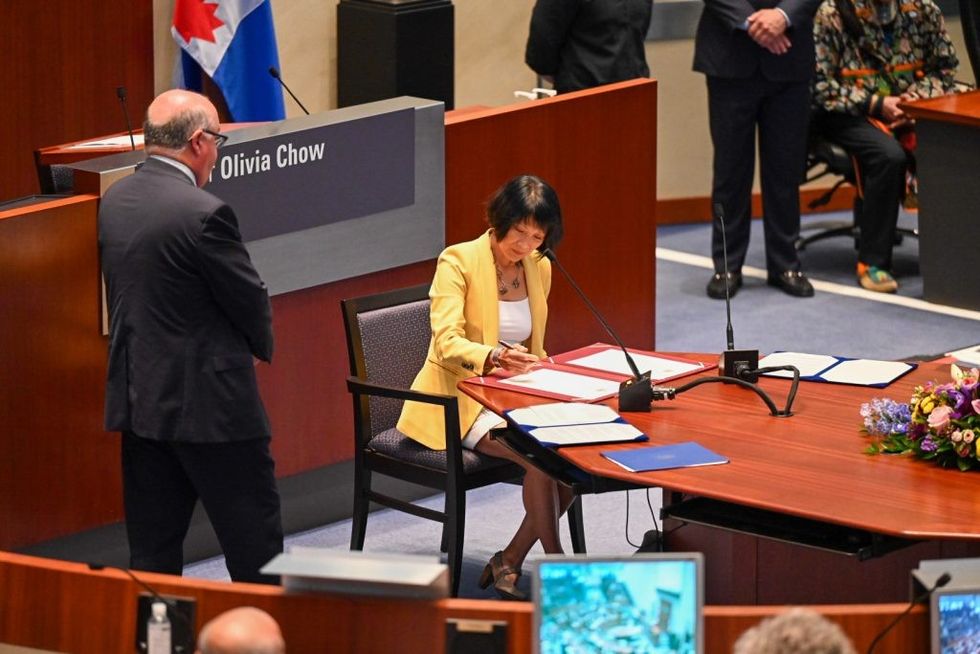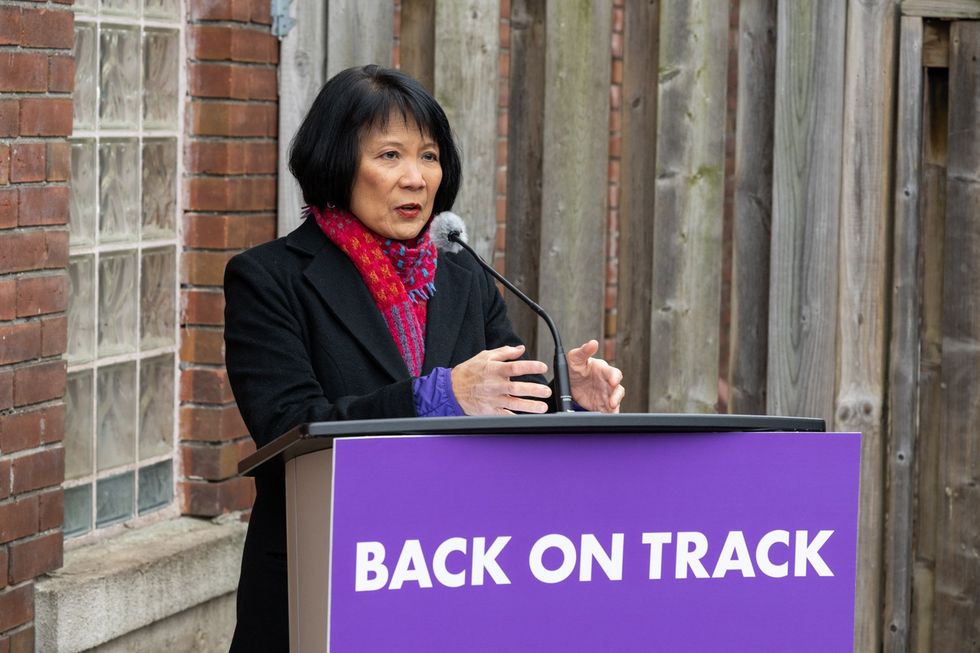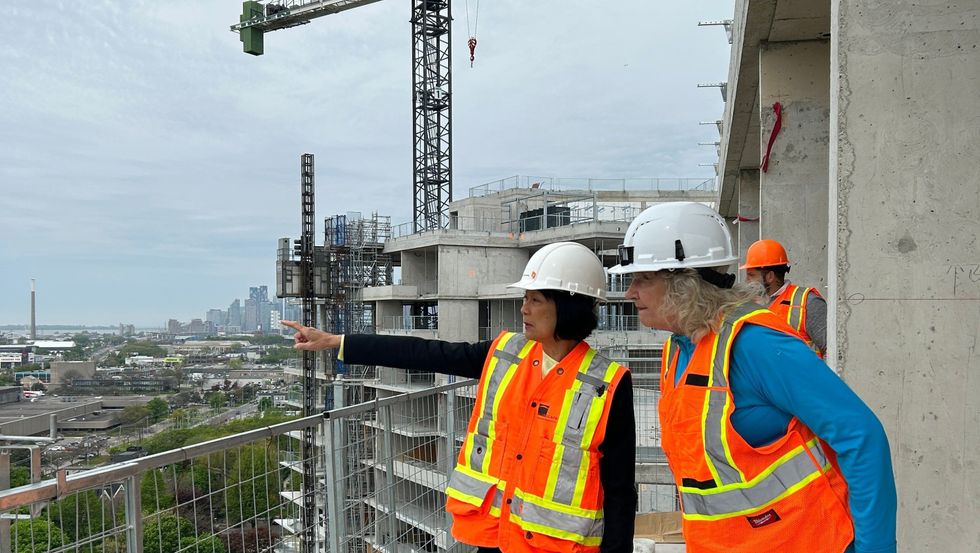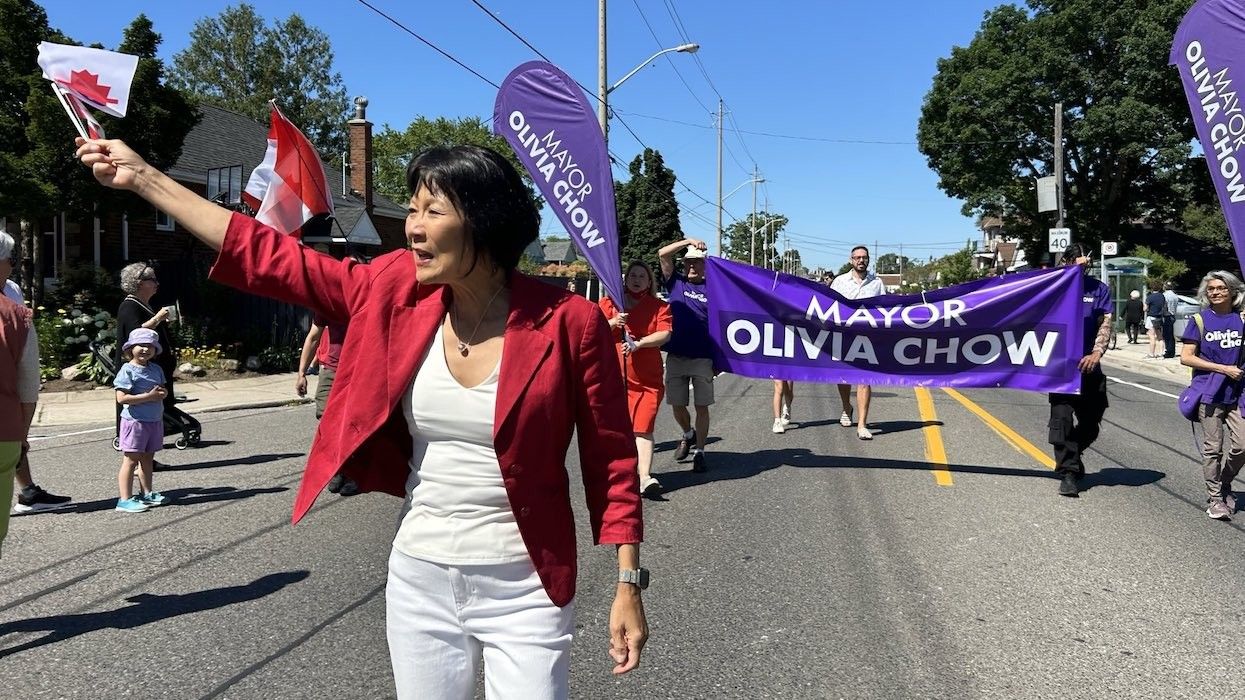She may have inherited a punishing housing crisis, but Toronto Mayor Olivia Chow describes her first year at the helm of city hall as fabulous. “It’s an honour to be the mayor of the fastest-growing city in North America,” Chow tells STOREYS. “Biggest number of cranes; we are building and building and building.”
Although it’s no simple feat to sum up everything Chow’s done for housing in Toronto since taking office on July 12, 2023 — while doing her achievements justice, that is — the main takeaway is that she’s already made good on many of her campaign trail promises, staying true to her emphasis on affordable housing and proving to be a champion for renters.
“We know that our city is growing, we have a lot of people moving into the city, and they need homes. So we are making zoning changes, building more housing, and speeding up the approval times — we’re working to [make] approval faster and easier,” Chow says.
Since Chow’s been in office — one year to this day — here are some of her biggest milestones on the housing front.

A “Transformational” Affordable Housing Plan
Just a few months into her mayorship, Chow was instrumental in getting a new, “transformational” affordable housing plan off the ground. That was approved at the November 2023 City Council meeting, and will see 65,000 new rent-controlled homes fast-tracked over the next seven years through a trail-blazing (and somewhat controversial) public development model. It also hinges on an updated definition for what's considered “affordable housing” in the context of today.
Mayor Olivia Chow spoke to STOREYS about the model in October, prior to it getting Council’s stamp, and said that more than 70 sites stand to be developed through the public development.
Extensive Supports For Renters
Chow underscores that times are tough for Toronto renters. As such, she has rallied behind renters from the jump of her mayorship, and over the course of the last year, she has been a driving force behind putting more resources toward the Toronto Rent Bank, the Eviction Prevention in the Community program, and the Multi-Unit Residential Acquisition program.
She has also put her weight behind updates to the inaugural RentSafeTO program, which includes new rules for city inspections, a more hands-on system for tenant complaints, and increased fees for non-compliance.
More recently, Chow’s City Council passed a new bylaw to keep renovictions in check — something she emphasized that she would focus on before taking office last summer — and that requires landlords to apply for a renovation licence seven days before issuing a notice to a tenant.

Housing For Asylum Seekers
Let’s not forget Chow’s advocacy for asylum claimants, which is something that’s garnered a share bit of media focus over the past year. Cities in Ontario and Quebec were hit particularly hard with a stream of refugee claimants, and that cost was put on local governments. As such, Chow implored the federal government to step up with their supports.
That resulted in a $143M investment from the federal government through the Interim Housing Assistance Program in February. In addition, Toronto received close to $20M that will be made available to low-income renters in Toronto through the Canada-Ontario Housing Benefit. In total, the feds pledged over $162M to Toronto.
Although many may not necessarily applaud her on this, because she did endorse it herself, getting those funding from the feds allowed Chow to back a lower (but still high, we know) property tax hike of 9.5% (versus 10.5%).
Increased Density On Major Streets
Gentle density is something that Chow has pushed for since the start of her mayorship, and this past may, Council voted in favour of as-of-right zoning for townhouses and six-storey residential buildings in residential areas along major roads. Buildings can contain up to 60 residential units. The thinking behind this is that it will help to expand the housing options available to Toronto residents. At that time, Council also requested staff also create rent-controlled affordable rentals and affordable ownership homes on the lots.
Prior to this change, townhomes and small residential buildings were only allowed in specific areas in Toronto. The new rule is forecasted to open up space on some 31,000 lots throughout the city.

New Appointments On Planning And Housing
We’d be remiss not to mention the team Chow has crafted, and some of her key appointments have included councillors Gord Perks and Brad Bradford who have moved into roles in the Planning and Housing Committee.
For his part, Perks has served on City Council since 2006, and had spent most of his time on the Planning and Housing Committee when Chow appointed him Chair. During his overall time with Planning and Housing, he championed things like the legalization of rooming houses city-wide and a more robust inclusionary zoning policy. "I'm just thrilled that Mayor Chow, who has a really comprehensive and ambitious housing program, has tapped me on the shoulder and asked me to help her deliver it," Perks told STOREYS in August 2023, shortly after his appointment.
As well, Chow has councillors Ausma Malik and Amber Morley in the City’s Striking Committee and sixplex champion Councillor Jamaal Myers as the new chair of the TTC. She says that they reflect diverse points of view that are really representative of the city.
Looking Ahead To Year Two
Looking ahead to year two of her mayorship, Chow's overarching sentiment is that there is still so much work to do. She says she needs more land, and she wants more rental apartments brought to the city. She also wants more shelters to respond to the growing number of refugees who are choosing to make Toronto their home.
And no, her work for renters is nowhere near done yet: she wants more rent supplements for those who are just a few hundred short on rent each more. This, she says, could be the difference between many people ending up in the shelter system (which is expensive for the city in itself) or avoiding it.





















